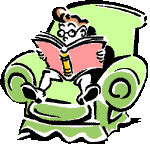Adult Literacy Development

The Problem:
According to the National Adult Literacy Survey (NALS), 92 million adults in the United States - almost 48 percent of the population - have very low or low literacy skills. Reading and writing at these levels makes it difficult to earn a living wage and turns everyday tasks into extraordinary challenges.
For the 40 million adults in the United States with very low literacy skills - those designated by NALS as Level One - it is a struggle to read to their children or help with them with schoolwork. The reading level of these adults is severely limiting. They cannot understand the instructions on an appliance warranty, find an intersection on a street map, or locate two pieces of information in a sports article. Equally disturbing are the facts that 43 percent of those with the lowest literacy skills live in poverty and nearly one-third of prison inmates have very low literacy skills. Another 52 million adults have only low literacy skills (NALS Level Two). While these individuals have a basic ability to read, many everyday tasks are beyond their skill levels. They cannot, for example, write a short letter explaining a mistake on a credit card bill or use a calculator to figure out the difference between regular and sale prices described in an ad.
Low literacy skills significantly impact adultsí ability to be productive as citizens, parents or workers.
The Implications:
- Forty-three percent of people with the lowest literacy skills live in poverty.
- Over 75 percent of current welfare recipients have very low or low reading skills.
- Only 30 percent of adults with very low literacy skills have full-time jobs. Some have part-time jobs, but over half of these adults no longer look for work.
- Nearly one-third of prison inmates have very low literacy skills. Close to 40 percent more read only at a low level.
- Several studies show that education programs reduce the likelihood that prison inmates return to jail after their release. A Federal Bureau of Prisons report found that completing an education course every six months reduced inmates' recidivism by almost 10%.
Even more widespread, the problem of people not reading--aliteracy--lowers the expectations and potential of the entire society. The life of the mind that practiced literacy engenders makes this recovery effort critical.
- Prepare for a Literacy Program -- These first six sites are from an awesome on-line book and CD-Rom resource by the International Summer Institute for Linguistics
- Plan a Literacy Program
- Implement a Literacy Program
- Current Instructional Programs
- What are Literacy Skills?
- Conceptualizations of Literacy
- Scope of the Literacy Need -- National estimates of literacy needs
- Illiteracy's Staggering Statistics -- According to UNESCO, in the world today there are about 1 billion non-literate adults.
- Grants and Funding for Adult Literacy -- Highly useful sources
- Basic Elements of Grant Writing -- Successful grant writing involves the coordination of several activities, including planning, searching for data and resources, writing and packaging a proposal, submitting a proposal to a funder, and follow-up.
- Adult Literacy @ Your Library -- The American Library Association's page of resources
- Collection Development: Content Areas -- A useful collection of sites and papers
- Guidelines for Library-based Literacy Programs -- Practical suggestions
- Interactive On-line Adult Literacy Tutoring/Coaching Workshop -- A "Web Quest Workshop" that combines solo and team tasks using web sites and an Electronic Discussion Board. It covers Literacy, Adult Learning, Reading, Writing, Dyslexia, Study Skills, Numeracy (Basic Math), Teaching Speakers of Other Languages, and GED Preparation--all in the context of nonformal (voluntary) adult education.
- The Adult Literacy Resource Institute -- Program and staff development center for adult literacy / basic education and English for speakers of other languages
- Literacy Volunteers of America -- A fully integrated national network of local, state, and regional literacy providers that give adults and their families the opportunity to acquire skills to be effective in their roles as members of their families, communities, and workplaces
- National Center on Adult Literacy -- Cutting-edge and high-impact research, innovation, and training in youth and adult education
- Building Coalitions -- A great site for considering the ins and outs of building and maintaining literacy coalitions
- Networking in a Language Program -- Benefits, Guidelines,and Difficulties
- Verizon Reads -- The telephone company's informative page
- Read California: Adult and Learning Disability Links -- Web sites devoted to adult literacy and learning disabilities
- Interactive Instruction for Adult Learners
-- Interesting and practical lessons in basic literacy
- Maryland Adult Literacy Resource Center -- Adult Education, Career Development and Job Preparation services for low-income adults
- Virginia Adult Learning Resource Center -- Adult education and Literacy resources
- Midwest LINCS -- Resources from 12 Midwestern states
- The National Assessments of Adult Literacy -- A nationally representative and continuing assessment of English language literacy skills of American adults
- ERIC Digest--The Issue: Adult Literacy Assessment -- Good overview
- Adult Learning: An Overview -- Exploring four major research areas (self-directed learning, critical reflection, experiential learning and learning to learn) each of which have been proposed as representing unique and exclusive adult learning processes
- Adult Learning -- Adult learning has been viewed as a process of being freed from the oppression of being illiterate, a means of gaining knowledge and skills, a way to satisfy learner needs, and a process of critical self-reflection that can lead to transformation.
- Administering Adult Literacy Programs: The
Role of Strategic Planning -- Ohio resources and research
- Virginia's Literacy Support Centers -- Excellent and varied resources!
- Management and Leadership in Adult Literacy -- Excellent resources from Pennsylvania
- Best Practices in Literacy Support Centers -- Array of effective program links
- Administration & Program Development for Adult Literacy -- Thoughtful, comprehensive topics from Texas
- Family Literacy: Respecting Family Ways -- This Digest discusses the family as a preferred place of literacy development and highlights family literacy initiatives that reflect respect for the family as a site of learning.
- Family Literacy: An Annotated Bibliography -- Combining reading initiatives of school-age and adult learners
- Family Literacy Links -- From Panhandle Adult Literacy Center
- Citywide Reads Projects -- To promote literacy; intergenerational book-centered discussion; and to foster a sense of community by bringing people together through literature
- Characteristics of Effective Family Literacy Programs -- A pdf document from Michigan
- Literacy Education -- Commits to provide teachers and other professionals with information and education about research-based literacy instruction
- Santa Barbara Area Matching Service Programs for Adult Education
- Dyslexia Awareness and Resource Center -- The Orton Dyslexia Society believes that people with dyslexia, a specific learning disability, account for 60% of the "illiterate population."
- Dyslexia: Suggested Interventions -- Ten recommended approaches for dyslexic readers.
- What Is the Rationale behind a Participatory Approach to Adult Literacy? -- Why a participatory approach to adult literacy better than the traditional approach
- How Do Participatory and Traditional Approaches to Educating Adults Differ? -- A leading literacy researcher distinguishes between two approaches to teaching adults: a traditional approach and a participatory approach.
- Multiple Intelligences for Adult Literacy and Education -- With this site we hope to inspire teachers and tutors to discover innovative ways to help their learners succeed, based on their learners' intelligences.
- Reaching Younger Workers Who Think Differently -- A call for bringing our definition of literacies in line with the "twitch speed" of today's learners.
- Second Start Adult Literacy Program -- Tutoring Resources
- PBS Literacy Link -- The site that helps adults build essential skills for lifelong learning
- Western/Pacific LINCS -- Western/Pacific LINCS provides free email, listservs, web hosting and development, and technical training to literacy programs throughout the western United States and the Pacific Islands.
- Adult Learning: Theory and Technology -- How adults learn and how technology can help
- Reading Matters! -- Reading matters reflected in these sites reflect the issues and ideas that matter most
- Transformative Learning -- The kind of learning we do as we make meaning of our lives. . . a very popular topic in adult education because it doesn't just involve classroom learning--it involves learning about our lives. This is important because as adults, the meaning making process can change everything about how we look at work, family, and the world.
- Working Hand-In-Hand to Educate Children -- Parents, Families, and Teachers hold the key to effective family literacy, and this site suggests a thoughtful division-of-labor.
- Career Designs -- Exploring career choices and resources

We are available for consulting and other services.
All courses and web pages Copyright © 2002-2005





